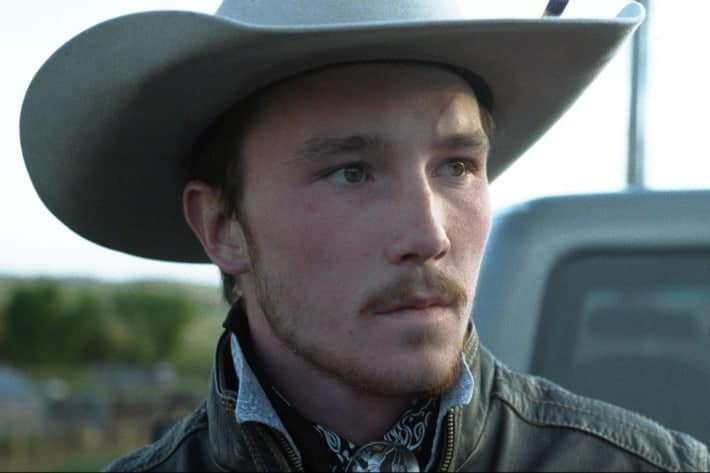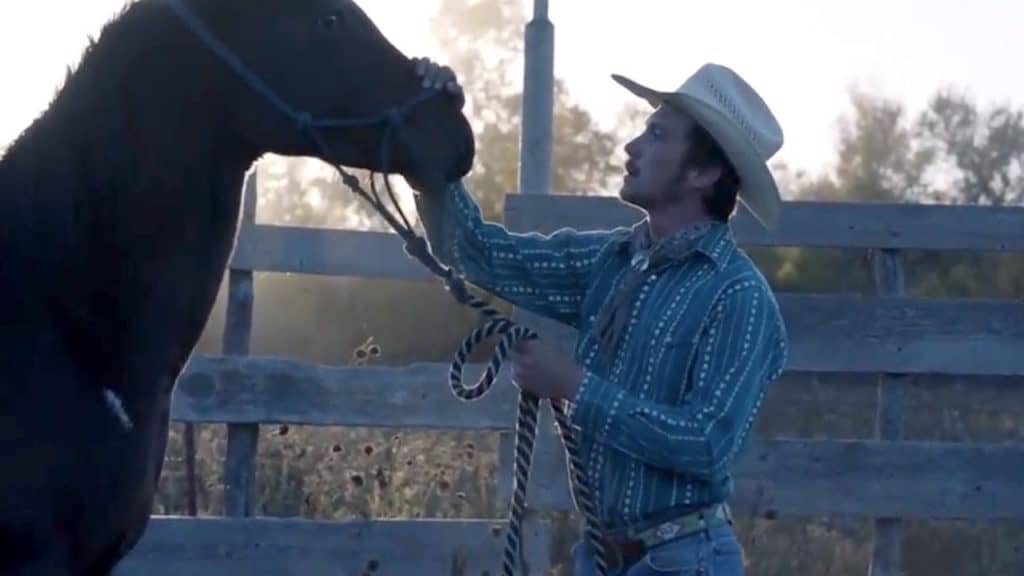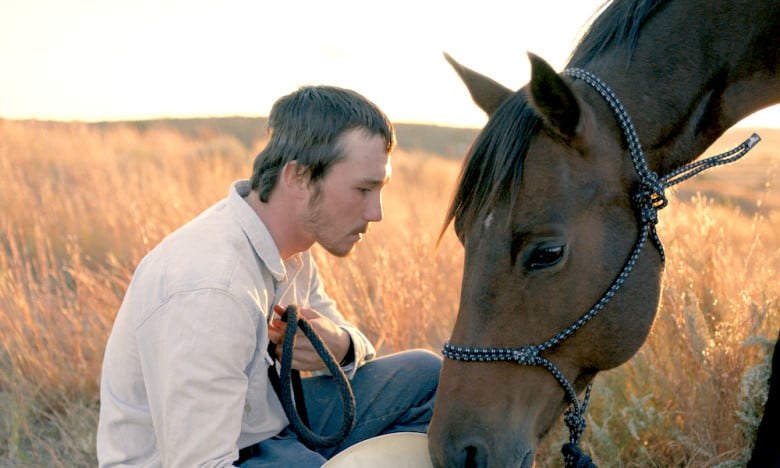
RELEASE DATE: April 13, 2018
DIRECTOR: Chloé Zhao
MPAA RATING: R
RUNTIME: 105 minutes
A budding, contemplative study of humans reconciling nature and determination reconciling fate, Chloé Zhao’s The Rider impresses in its quietest moments. When Brady (Brady Jandreau), a South Dakota-based cowboy, is nearly killed in a rodeo accident, he’s forced to give up the passion that has driven his entire life.
Recuperating at home, in the constant presence of his sister Lilly (Lilly Jandreau) and father Wayne (Tim Jandreau), Brady’s past – mapped in furious seconds, instinctual movements and rushes from the crowd – has been replaced with a slow and open future. He routinely heads out into the open plains, and in those moments, Zhao frames him as an infinitely small figure. It’s not to belittle or to criticize the character, but rather to state a thesis. Here is a man pushed down in the frame, his initial ideals minimized by a vast and complicated world.
The Rider follows Brady through a journey of recalibration. As much as he would like to return to bronco glory, another head injury could be fatal – even casual riding is a risk. Yet the film is less about the exclusive struggles of an individual and more about a piercing, universal occurrence. Many stories tell us about the values of stubborn perseverance, but few examine a real-world scenario, one where healing doesn’t mean an immediate reversion and where change doesn’t mean surrender.

Zhao’s filmmaking is both naturalistic and multifunctional. Employing non-professional actors, ostensibly playing fictionalized versions of themselves, she crafts drama through realism and cognizance. It’s all splashed against glorious scenic compositions, which are emotionally heightened, inherently cinematic delights.
This mixture of quasi-documentary and quasi-melodrama is always logical, because the film’s vision is always consistent. Brady Jandreau’s corporeal performance provides a rich center. He’s exploring a total switch; the extensive physical masculinity his character has both idolized and elevated is juxtaposed with the more introspective world he now inhabits. Where he ends up isn’t as important as how he forges a path.
The Rider uses its cast of amateur performers to its advantage. Whereas a trained actor would search for other dimensions to access emotion, this film makes those connections at the surface, and its protagonist does his part by simply existing in its world. Certainly having his actual relatives play his on-screen kin is helpful, but Zhao never draws attention to what could have been a mere gimmick.

To whatever extent that The Rider subverts cultural norms, it always does so in understated ways. The film introduces us to Brady well after his accident – with initial scenes depicting him wrapping his stitched-up head in plastic wrap before taking a shower – and draws a curved line to an uncertain future. Zhao denies the basic, crackerjack Americana of an idealized recovery, where the unfazed hero bounces back as if nothing happened.
In one scene, Brady mentions that, if he were a horse, he would have been put down after his injury. Humans aren’t euthanized after such incidents because they are recognized as having value in other ways. They can adapt. The bucking violence of the rodeo world is seen only through shaky cellphone footage, viewed in retrospect and shot from a distance. Though it takes some time for Brady to acknowledge, there’s a chance that’s where those experiences will always remain for him.

Evaluating the movie in that respect suggests a depressing finish, but that’s another reading The Rider rejects. Zhao constantly returns to the seemingly infinite beauty of her exterior settings. As the mark of Brady’s life, they take on new meaning throughout the film.
Though we associate those images with the rough-and-tumble spark that comes with traditional views of manhood, something else comes to the forefront. We’re reminded that all tomorrows are unwritten, and while there is an initial tragic underpinning when we realize that he might never again ride a horse through those picturesque vistas, a more literal viewing of them remains.
If Brady’s world is unconquered, why shouldn’t he be as well? The eventual message that the script lands on is more obvious than its unrestrained route, but it finds a tone along the way that’s adventurous in its making and gorgeous in its unleashing.






